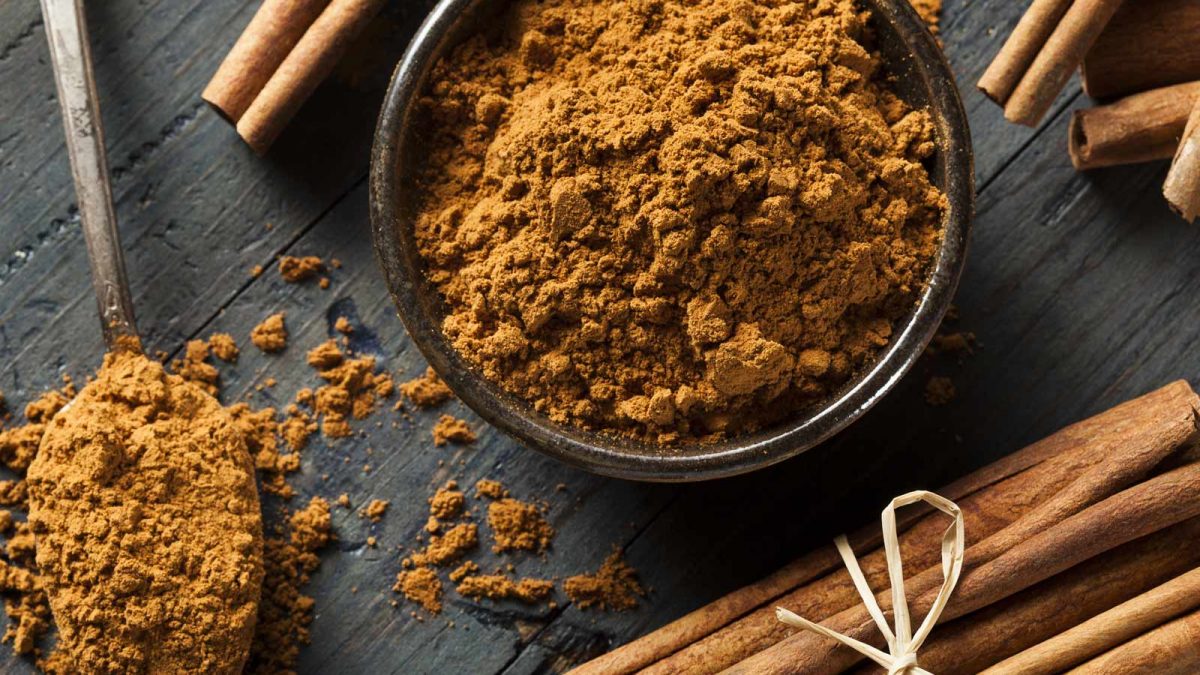Four Health Benefits of Cinnamon
Do you know about the four powerful health benefits of cinnamon for diabetes? Read on!
Cinnamon is so delicious and comforting that it might seem strange to consider it a medicine. But within cinnamon is a world of volatile oils and phenols, which act on different sites in your body to improve health. And one thing that science agrees on is that cinnamon promotes healthy blood sugar control. In fact, research reveals four distinct ways that cinnamon works to prevent (and even treat) diabetes by:
- Scavenging free radicals
- Improving insulin sensitivity
- Acting like insulin
- Blocking carbohydrates
In a recent study of 60 individuals diagnosed with type-2 diabetes, researchers found that patients who were given as little as one gram of cinnamon daily (about half a teaspoon) experienced an 18 – 29% decrease in their blood sugar levels.
And according to research, cinnamon acts in a “dose dependent” manner… in other words, the more you take (to a degree, of course), the greater the activity. And it’s delicious, so what better reason could there be?
Cinnamon: The Spicy Scavenger of Free Radicals
Cinnamon is a potent antioxidant. Out of all foods, it ranks among the top ten with a score of 131,000 on the ORAC scale.
It has been shown to fight against advanced glycation end-products (AGEs), which are a primary culprit behind cellular damage, visible aging, inflammation and chronic illness. AGE’s are the by-product of a chemical reaction between sugars and fats or protein, which are actually a normal part of your metabolism. But the formation of these damaging compounds rapidly accelerates when blood sugar levels increase.
In a study published in the Journal of Agriculture and Food Chemistry, researchers found that cinnamon inhibited the formation of AGEs. Cinnamon also shows a scavenging effect on one particularly nasty type of AGE – methylglyoxal.1
So, eat a daily dose of cinnamon to fight AGEs – especially if you have metabolic or health concerns related to blood sugar.
Cinnamon for Improved Insulin Sensitivity
Insulin resistance is among the first warning signs on the road to diabetes. In response to elevated glucose levels after a meal, insulin shuttles the glucose inside our cells to keep blood glucose levels in a healthy range. But if you are insulin resistant, your cells fail to recognize insulin, leading to unhealthy blood glucose levels. Since cinnamon increases enzyme activity in the insulin signaling pathway, it helps your cells to recognize insulin again.
From a review posted in the Journal of Diabetes Science and Technology.
“… when compared to [other] herbs, spices, and medicinal extracts, aqueous cinnamon extracts (CE) potentiated insulin activity more than 20-fold, higher than any other compound tested at comparable dilutions.”2
Yet another great reason to go heavy-handed with this spice in your cooking.
Cinnamon… Acts Just Like Insulin?
Not only does cinnamon help your body to recognize insulin, it also acts like insulin! This is the result of a phytochemical called cinnamtannin B1 (cb1). Research shows that cb1 binds to insulin receptors and activates a process called phosphorylation. This encourages glucose uptake (thus helping to reduce blood sugar).
Researchers in Malaysia isolated cb1 and added it to 3T3-L1 fat cells. Surprisingly, the cells treated with cb1 were higher in activity than those treated with insulin itself. Cb1 even outperformed both mixed together.3
Benefits of Cinnamon: The Natural ‘Carb Blocker’
Cinnamon is rich in active compounds, including tannins and flavonoids, which help decrease the amount of carbs digested and absorbed by the gut.
Research published in 2011 in Nutrition and Metabolism put cinnamon to the test. Scientists found that cinnamon inhibited the digestive enzymes responsible for breaking starches into smaller units.
The result of this would be a lower blood glucose reading after a meal.4
Another study conducted by Thai researchers found various species acted on different enzymes. One species of cinnamon targeted maltase (the enzyme that breaks down maltose). Another inhibited amylase and sucrase.5
Selecting the Right Cinnamon
Most cinnamon found in supermarkets is the Cassia variety, which contains significant amounts of the anti-nutrient, coumarin, which can be harmful in high doses. If you are using Cassia, use less frequently, and in smaller amounts. Rather than Cassia, enjoy organic Ceylon cinnamon to reap the most benefit without any negative effects. Mix it into broths, soups and marinades to boost flavor, balance blood sugar, and ward off age-promoting compounds.
Cinnamon is best consumed alongside a healthy ancestral diet, but here are a few sweeter ideas for you:
- Poached pear with cinnamon, erythritol and a little coconut cream
- Make a protein packed smoothie! Add half a teaspoon of cinnamon to the mix and antioxidants like cacao, turmeric and ground ginger.
- Cinnamon Paleo pancakes!
- Soak a cinnamon stick in a cup of tea before drinking
- Make a cinnamon “sugar”. Combine equal parts: erythritol and cinnamon. Sprinkle on top of Paleo breakfast granola or low-glycemic organic fruit like berries and apples.
- Add a half teaspoon of cinnamon to your morning coffee. You can also add it to the freshly ground beans, then brew as usual.
- Slow roast your favorite grass-fed beef or lamb, and pair with an Indian-inspired chutney or yogurt-based sauce spiked with cinnamon, turmeric and coriander.
And don’t forget, cinnamon is a warming spice! It is a great addition to hearty winter foods, like curries, chilis and stews. Make it a goal to include cinnamon daily for all its wonderful health benefits. Especially those for diabetes and healthy sugar metabolism!





Thank you for your excellent research and site. I just listed my newest book, PRAYER THERAPY AND NEUROPLASTICITY, on Amazon.com and I thought you might be interested. As a theologian and former psychotherapist in psychiatric hospitals, I longed to have the insights you now provide from the naturopathic viewpoint. If interested, I am looking for someone that has your approach to partner with in helping people find personal wholeness in spirit, soul and body. Please let me know. Respectfully, Dr. James Burck 804-598-9352
I enjoyed your article and compliment you for the same. It’s an eye opener.
I’m a firm believer of alternate medicine – and you helped me in this respect.
I love Cinnamon and have also recommended one of my friend’s wife as well.
I’m sanguine she will also follow in the same spirit as I do.
If you have any further recommendations for all three meals for people suffering from diabetes that would be great.
Stay blessed.
Hi Nasir,
Thank you for your kind words, and I’m happy to hear that Healing Gourmet has been helpful in your quest for better health.
Many people with diabetes have found a low carb, grain-free diet is most helpful for blood sugar control. Of course, you should discuss any dietary changes with your health care practitioner. You might be interested in our new completely personalized meal planning program, Meal Genius, that will soon be launching. Not only will it help you design a plan with the calories and macronutrient ratios you desire, but it creates customized shopping list based on your household size and much, much more. Please be sure to sign up for the Healing Gourmet newsletter to be informed on the launch.
Be Well,
Kelley
Hi Kelley:
Thanks for your quick response. Appreciate.
Please let me know when “Meal” Genius is launched.
Stay blessed.
Nasir
Thank you, Nasir! I certainly will. Blessings to you.
Has your meal plan program launched? I’m very interested! Thank you! Rena
Looking forward to ur new prog launch
Thanks, Champ! I appreciate your interest and the encouragement. It has been quite an endeavor 🙂